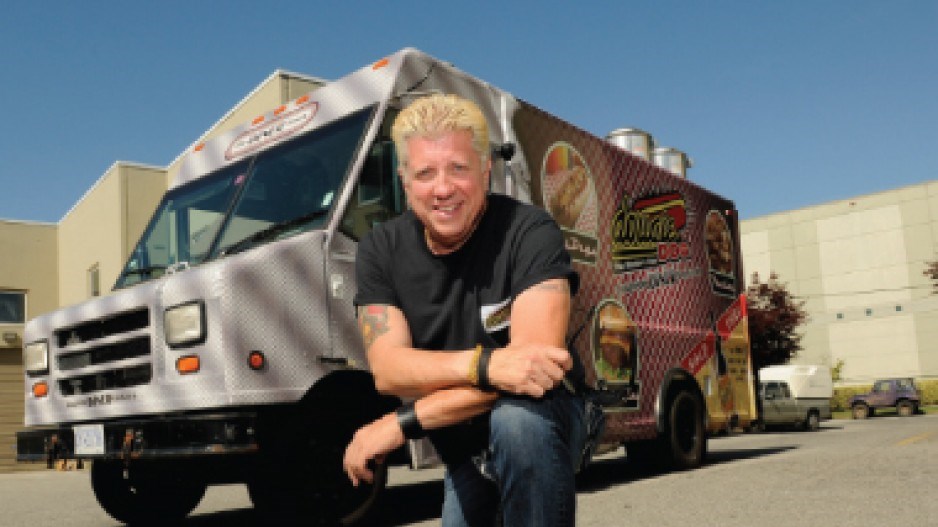Hindsight is 20/20. Or so it seems for the four lucky Vancouver entrepreneurs who pitched their business ideas on CBC’s popular reality show Dragons’ Den.
The four Den victors – Scott Lim of BKH Jerky healthy meat jerky; Dougie Luv of Dougie Dog, the hot dog restaurant whose $100 Dragon Dog is now in the Guinness Book of World Records as the most expensive luxury hot dog; Brad Friesen from Last Call, the hangover cure; and Dan Plante from Chawel, the portable beach changing room towel shared words of wisdom with BIV.
When Lim stumbled through his first audition for Dragons’ Den, his pitch was a flop. And yet he eventually appeared on the show and walked away with $150,000 in financing.
So how did he do it?
“Good coaching and lots of practice,” said Lim, whose turning point came with getting mentorship through the Entrepreneurs International Organization (EIO).
“If it wasn’t for that coaching, I don’t think we could have gotten to where we are now,” Lim explained. “Before the show, I was terrible at public speaking … but you need to be willing to learn and develop the skills you need to grow your business.”
But where Lim focused on perfecting his pitch, Luv focused on leveraging publicity from the show.
“Even though Dougie Dog sales went up 500% after the show aired, I didn’t just sit back and ride that wave,” said Luv. “Publicity is short-lived. You need to keep on top of the exposure and stay creative.”
Luv created a newsworthy buzz by timing the release of his $100 Dragon Dog to correspond with his appearance on the show and the Chinese Year of the Dragon. Luv’s creative PR strategies ended up catching on worldwide.
“I just had two guys fly out from the U.S. to try the Dragon Dog,” said Luv. “I personally make each one, and the customer is invited to come to the back and help me make it … . It’s about creating an experience for your customers. You need to keep things different and exciting.”
Friesen’s unique approach to pitching his idea for Last Call had him prepare for his appearance by going out bar-hopping the night before in what he calls “The 12 Bars of Christmas.”
“I took a risk by coming onto the show in a T-shirt and flip-flops and the 12 Bars approach,” explained Friesen.
“But in the end, it’s an entertainment show. So I knew I could get away with being a jackass since it would make for good TV … but you have to know your audience and present your ideas in a way that will catch their attention. Sometimes that means taking risks.”
Even though Friesen’s pitch to the dragons was successful, it still took 12 months to get a cheque in his hands.
“Deals happen,” Friesen explained. “But you have to be persistent, patient and you need to be prepared to wait for it … . There’s a lot that goes into finalizing investments so you need to have some money before you go into it; you can’t just rely on investors.”
It seems that you also can’t rely on people finding your website, as Plante learned with his product, the Chawel, which potential customers frequently misspell as “Chowel” when looking online.
“Product name is so important … . I wish I had invested a bit more into research and testing the market.”
Plante also learned the value of investing in legal advice and intellectual property when he missed the boat on patenting his product by learning too late that he only had one year to patent a new invention.
But it’s exactly this kind of growing and learning from mistakes that sets apart successful entrepreneurs from those who struggle to make it happen.
“As an entrepreneur, there are obstacles you have to overcome every day. I wake up every day prepared to face those challenges and to make mistakes along the way,” explained Luv.
“When you face a closed door, you need to take that chance and open it. Because if you don’t, you’ll miss out on what’s waiting on the other side.” •




